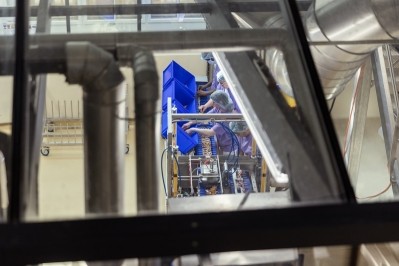Cell-based collagen: Great idea… but what are the potential food applications?

Why cell-based collagen? Collagen is one of the most unique and abundant proteins in mammals. The protein provides structure to cells and tissue. Its consumption, in the form of collagen peptide powder, which when absorbed travels through the body, repairing, rebuilding and providing energy, is linked to numerous health benefits, particularly associated with healthy ageing.
Collagen is used across a host of industries including biomedical, health, personal care & beauty, materials, and food & beverage industry applications and makes up an US $8.4 billion market globally. However, the protein is only found in animals. With an increasing demand for sustainability as well as supply chain challenges, many companies are, according to Jellatech, ‘desperately looking for novel sources for collagen’.
This is where rapidly advancing cell-based technology comes in. “Cellular agriculture enables us to produce a more sustainable, smarter high-quality collagen that breaks the cycle of relying on an inefficient and unethical supply chain of live animals,” Jellatech Co-Founder and Co-CEO Stephanie Michelsen told a press briefing at Bühler’s Swiss headquarters.
After only two years in existence Jellatech has announced successful development of a full length, triple helical and functional collagen made from its own proprietary cell lines in the US.
The process begins with a sample taken via a small 3mm skin biopsy from an unharmed animal. Once the cells are cultured in bioreactors in the company’s lab, the collagen protein is extracted, purified and filtered. What remains is bioidentical to collagen extracted from animals. The whole process takes about four weeks.
“It's the same collagen you get from an animal but more ethical, sustainable and safer,” stressed Michelsen.

An end product is a long way off. Michelsen said she expects the company to have a product on the market in 3-5 years. There are regulatory hurdles too, of course. Interestingly, Michelsen believes cell-based collagen may not have to go through the same regulatory framework as cell-based meat, given that animal cells are not the end product of its process.
Neither is Jellatech the only biotech player eyeing the lucrative collagen market. Israel-based cultured meat start-up Aleph Farms says it is moving to full production of lab-grown collagen and is on course for commercial launch by 2024.
Collagen is moving beyond a specialised functional space
Jellatech’s breakthrough does pose an intriguing question: what food applications are best suited to using cell-based collagen as an ingredient?
Gummies are an obvious starting point. This is a hang up from the tradition of collagen supplements only being available from chemists and health stores. Gummies are therefore a popular method for consuming collagen among people who don’t like to take pills. Gummies feel less medicinal and more like candy. Interestingly, Michelson overserved that cell-based collagen in gummies may better suit a European audience who prefer a harder chew that it provides.
But it can also be used as an ingredient in a wide variety of food and beverage applications including drinks, cereal bars, chocolates, yoghurts and cookies, FoodNavigator heard.
While collagen peptides are best known for their functional benefits, less is known about its potential use in product formulation and reformulation efforts. But as more discoveries are made about its health benefits and collagen moves beyond a specialised functional space, big food companies have been looking to step into the collagen area.
In 2019 Hershey’s popcorn brand, Skinny Pop, developed SkinnyPop +Collagen popcorn. Announcing the development, the brand said the product delivered the benefits of adding collagen peptides to your diet and came as an alternative to taking powdered supplements or collagen-infused snack bars. Soon afterwards Danone launched a collagen enriched yogurt in North America called Light & Fit. According to the company, the innovation was the "first packaged yogurt with collagen”.
Delivering the ‘best of both animals and plants’
Hybrid products are another intriguing option for cell-based collagen. Hybrid products contain both animal and plant-based proteins and are a quickly emerging option for those flexitarian consumers who want to reduce their environmental impact whilst still getting an indulgent taste experience. Cell-based collagen could therefore boost the organoleptic qualities of, say, a meat analogue without sacrificing its sustainability and ethical credentials.
“I think hybrid products are a really good first start,” concurred Michelson. “We're getting a lot of interest from plant-based food companies that want to make that really juicy steak or improve the texture of the product.”
Hearty bone broths are another option, she said, as are confectionary products, particularty with this sector facing pressure to use more sustainable ingredients
“We've also seen a lot of interest from cell-based meat companies,” Michelson added, “because they need collagen for scaffolding [needed to create structure and texture for cells] or to improve mouthfeel.
“We have a lot of interest. We just don't have the scale yet to supply.”

























